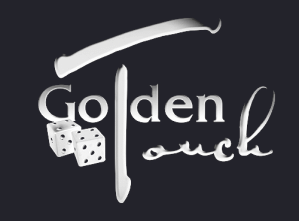
The Captain Invented the Modern Dice Control Movement
The Captain Invented the Modern Dice Control Movement
By Frank Scoblete
The Captain of Craps, the Atlantic City legend, was responsible for discovering how to beat the modern casino game of craps with controlled shooting ' which he used to call "rhythmic rolling" as well as "controlling the dice." He applied this technique to beat the casinos from the late 1970s through 2007 ' almost 30 years of constant play. Yes, he won millions.
Since 1998, some writers have tried to take away the dice control laurels from the Captain and assign them to other people who merely tried to build (sometimes incorrectly) on what the Captain had created. These pretenders to the throne are many, of course, since a good idea is always worth pilfering.
In 1993, my book The Captain's Craps Revolution! was published and in it the Captain addressed the issue of controlled shooting ' long before any of the pretenders came out of the woodwork to try to take credit for this brilliant technique and his brilliant ideas. Here is an excerpt from the above referenced book:
The Captain: "I don't need to guess. I know that some people have trained themselves privately or at the tables to control the fall of the dice. 'The Arm' has had remarkable success fixing [setting] and controlling the dice. 'The Arm" consistently has major rolls. Recently at the Sands casino in Atlantic City, during a Sinatra weekend, with the place packed with free-wheeling high rollers, and then several days later at the Claridge right across the street, 'The Arm' had monster rolls of positively legendary proportions. This isn't coincidence or merely fluctuations in randomness. 'The Arm' controls the dice! [Bold lettering mine]
"Does it mean that every time 'The Arm' picks up those cubes, a big one is coming? Of course not. There are times when she isn't at the right spot on the table or the throw is a little off. Having played with 'The Arm' for years, I can recognize the signs of an off night. So can she. But if the groove isn't there, just like a pitcher, 'The Arm' leaves the game and does not roll.
"When we talk about fixing and controlling the dice, we aren't looking for perfection. Pitchers don't pitch perfect games every time out. In fact, each separate roll of the dice to a player who can control them is like a pitch in a game. The good pitchers will consistently throw strikes and have good games, not every time out, but enough that you can say this isn't just randomness or luck. Also, you have to define what you mean by a good roll. My definition is simple: a good roll is one where the seven doesn't show long enough to make me money or one where I can make a good profit because there is a rapid succession of repeating numbers. Fixing and controlling the dice has more to do with certain numbers being repeated than it does with monster rolls. You don't have to have monster rolls to win. I've seen rolls by 'The Arm' where the four will come up four or five times in a row, followed by some other numbers, then another string of fours before sevening out. It's a wonderful feeling to be up on only one number after the 5-Count and have that number hit repeatedly in rapid succession. People who can control the dice will tend to have certain faces of the dice appear more often than these faces would otherwise by chance."
In the book, the Captain then continued about how one should practice to actually get control over the dice; how many rolls one should do to see if such control was actually there. He mentioned that he sometimes had control but other times he didn't, but he denied he was very good at it. He thought of himself more as a rhythmic roller which is, I guess, the equivalent to "control light." I also guess that assessment of himself was his humility talking because in my over dozen years of steadily playing with him (and 'The Arm') in the late 1980s and 1990s, he was damn good and had the prototypical roll that works best for most controllers. He was aware that using the word "control" meant a high degree of accuracy with the dice ' so he considered himself more of an influencer. This coming from a man who rolled 100 times in 2004 and 147 times in 2005 before sevening out ' the only player I know of who has had two hands of over 100 rolls!
To me the use of words such as dice control, rhythmic rolling and dice influence all mean the same thing. The shooter has the capability to get an edge over the casinos.
Unlike today when you can find controlled shooters in greater numbers, in the Captain's early days they were few and far between. But they were there and the greatest of them was 'The Arm' and the most brilliant of them was the Captain.
The Captain was the first to fully understand dice control and its ramifications, and no amount of taking his words out of context or trying to give the laurels to someone else can take these achievements away from him. All the current vocabulary of dice control; all the analogies to baseball or golf or other sports; all the talk about being at the right spot on the table; all of our understanding of when to leave the table; the knowledge that repeating numbers can also be the way to win money even without monster rolls ' yes, all the modern parlance of the dice control world come from him.
The Captain was the MAN then; he is the MAN now; and he will remain the MAN forever.


